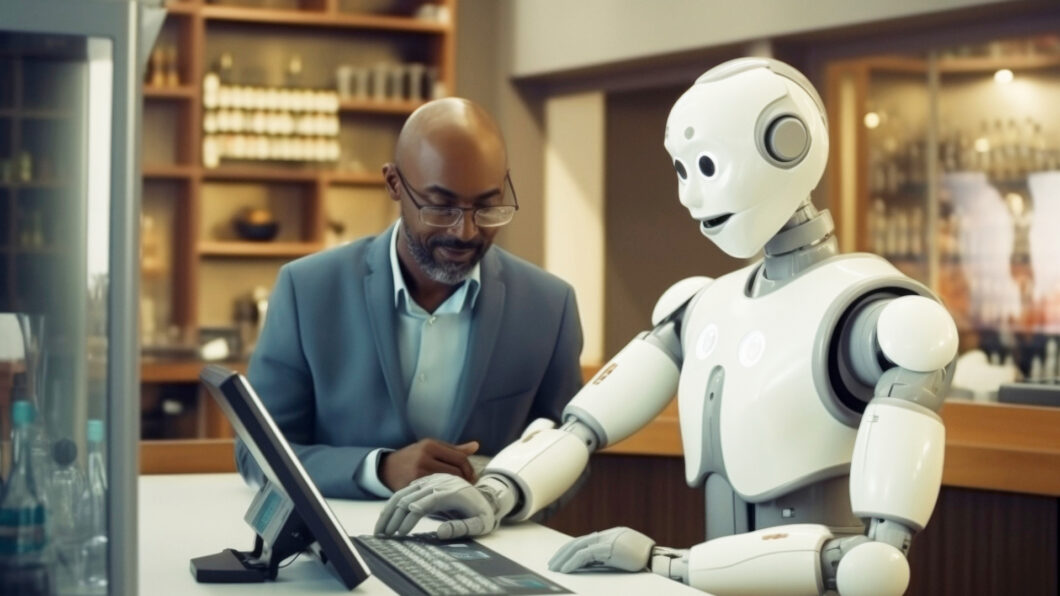Artificial Intelligence (AI) is no longer a futuristic concept—it’s here, and it’s reshaping the world of work. From chatbots answering customer queries to algorithms writing news articles and machines analyzing X-rays, AI is transforming industries at an accelerating pace. But with innovation comes disruption. Many workers are understandably anxious about which jobs might disappear and how they can stay relevant in this changing landscape.
Let’s break it down:
Which jobs are at risk?
Why AI is replacing them?
And most importantly—what can you do about it?
Jobs AI Is Likely to Replace
AI thrives in environments where tasks are repetitive, predictable, and data-driven. That makes some jobs more vulnerable than others. Here are a few roles at high risk:
1. Data Entry Clerks
Repetitive keystrokes and standardized input make data entry one of the first casualties of AI automation. Optical character recognition (OCR) and natural language processing (NLP) tools can extract, interpret, and organize data faster and with fewer errors than humans.
2. Telemarketers
AI-driven bots and automated phone systems can now handle outbound calls, answer objections, and even personalize sales pitches. Unlike humans, they can make thousands of calls an hour—at a fraction of the cost.
3. Customer Service Representatives
Chatbots and virtual assistants like ChatGPT are increasingly able to handle complex queries, 24/7. While human agents are still needed for nuanced or emotional conversations, basic customer support is moving toward automation.
4. Retail Cashiers
Self-checkout kiosks and AI-powered payment systems are slowly replacing cashiers, especially in large chain stores. Amazon Go stores, for instance, eliminate checkout altogether.
5. Transportation and Delivery Drivers
With self-driving vehicles becoming more reliable, jobs in trucking, taxi services, and delivery are facing serious long-term disruption. While regulation may slow this down, the trend is clear.
6. Basic Legal and Financial Analysts
AI can now draft legal documents, analyze financial data, and flag anomalies faster than human counterparts. These tools are especially effective in routine tasks like contract reviews or compliance reporting.
What Can You Do About It?
The key to surviving—and thriving—in an AI-driven world is adaptability. Here’s how to future-proof your career:
1. Invest in Lifelong Learning
Upskill regularly. Learn new technologies, soft skills, and industry trends. Platforms like Coursera, LinkedIn Learning, and Udemy offer affordable courses on everything from data science to digital marketing.
2. Focus on Human-Centric Skills
AI lacks emotional intelligence, creativity, and ethical judgment. Roles that rely on empathy, critical thinking, leadership, and interpersonal relationships are harder to automate. Careers in psychology, education, social work, and the arts are relatively safer.
3. Move into AI-Adjacent Roles
Rather than competing with AI, work alongside it. For example:
AI trainers teach systems how to respond better.
Data annotators help AI “understand” visual and written content.
Prompt engineers create effective instructions for language models.
4. Explore Creative and Strategic Careers
Writers, designers, marketers, and entrepreneurs—AI can assist but not replace human ingenuity. Original thought, cultural nuance, and big-picture strategy are areas where humans excel.
5. Embrace Digital Fluency
No matter your field, being digitally fluent is essential. Understand how to use AI tools to boost productivity, whether you’re a teacher using AI to personalize lessons or a business analyst interpreting AI-generated reports.


